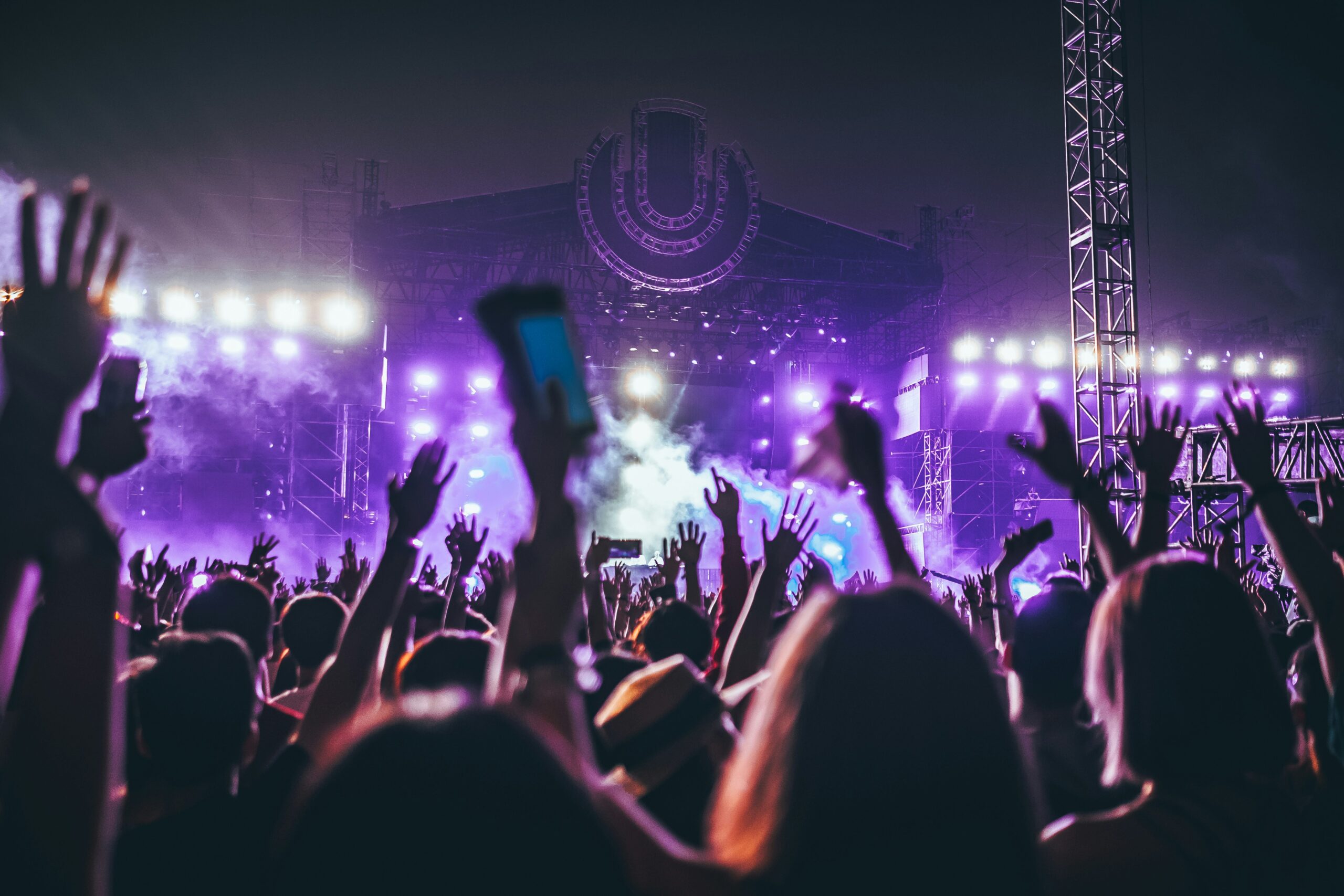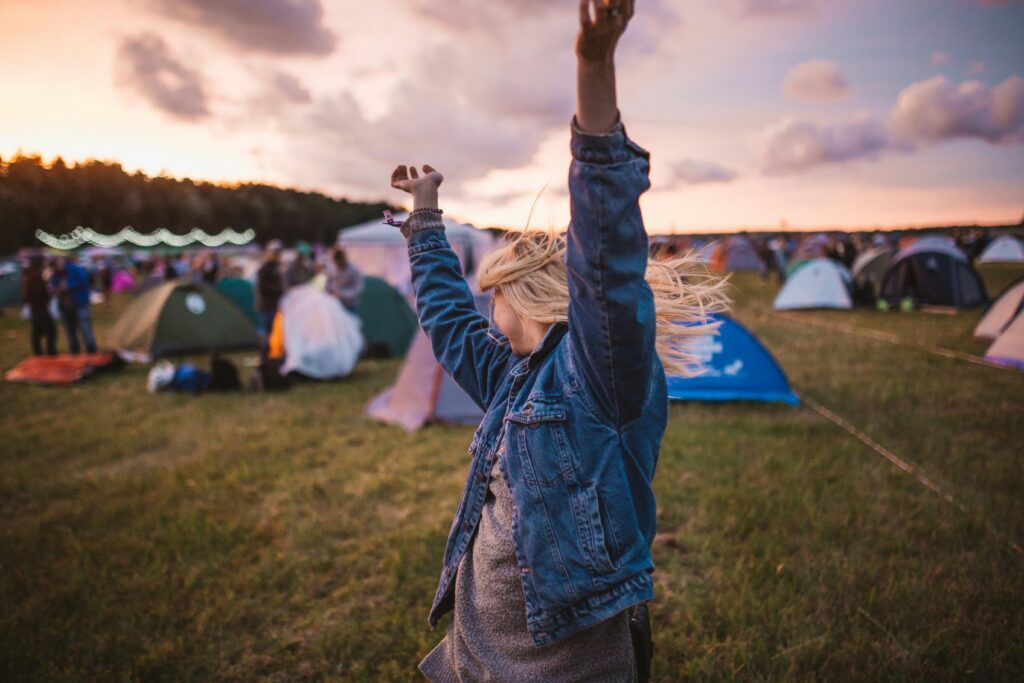I love the transition into the warmer months, and changing out heavy coats and boots for jackets and flip-flops is always a welcome change for me. One of my favourite parts of the northern summer is knowing the festival season is on the way, and imagining all of the potential that lies ahead.
As the prospect of moderate sunburn, balmy nights, and attempting to shimmy like Mick Jagger through hordes of people beckons me for another year, I find myself thinking about how deeply music ties into memory. It’s not just about the songs we love – it’s about the way they hold onto our experiences. It’s funny how a sound or a song you haven’t thought about in years can instantly bring back a place, a feeling, and a version of yourself you might have forgotten.
These moments aren’t just nostalgia or a natural part of getting older – they’re a form of emotional time travel. And festivals, in all their chaotic glory, seem to generate these memories more powerfully than almost anything else.
It turns out, there are scientific reasons why these events are emotionally charged and feel so good when we partake in, and later reminisce about them. So, whether you’re working, performing at, or attending festivals this year, the chances are you’ll experience some of the benefits they have to offer.
The Festival Effect
Festivals offer more than just music – they create a full sensory experience. For many of us, they are the largest events of the entire year, and we can find ourselves suddenly surrounded by thousands of people, powerful lights, unpredictable weather, movement, and intense levels of sound.
All of this contributes to a kind of heightened awareness, which is a key factor in making memories stick. Dr. Daniel Levitin, a cognitive psychologist and author of the fascinating book This Is Your Brain on Music, explains:
“The more sensory input and emotional weight a moment has, the more deeply it gets encoded”.
And it’s not just the big headline sets with all the bells and whistles that stay with you. There are numerous benefits to experiencing the smaller moments in these environments, which can contribute to the positive effects on both the body and mind.
Physical Effects
We know that music has a profound ability to foster connection among individuals, especially in group settings. Research shows that shared musical experiences enhance social bonds, promote empathy, and contribute to a sense of community.
When we engage in musical activities together, it can lead to increased feelings of closeness among the participants. We literally release endorphins and oxytocin in our bodies, which are the neurochemicals associated with pleasure and social bonding.
Another intriguing physical byproduct of festivals is synchronization. Synchronizing movements with others, like when we are singing and dancing in unison, can blur the lines between self and others, leading to a heightened sense of group identity. This phenomenon, often referred to as “self-other merging”, is believed to be a mechanism that’s enhanced by environments like music festivals.
Mental Health Benefits
As well as the physical, measurable effects, it’s also been proven that the collective experience of enjoying live performances fosters a sense of unity and belonging – it basically reduces feelings of loneliness while promoting psychological well-being. The improvements to the mental health of attendees in scientific studies show that festivals can also be hugely beneficial for our moods as well as our bodies.
In a practical sense, the combination of music, social interaction, and a break from the daily grind of our usual routine can of course, all contribute to these therapeutic effects felt in the body and mind, but ultimately, the magic really lies in the emotional and physical experiences we have in the moment.
Why Music Triggers Strong Memories
There’s a reason hearing a song from a past summer can take you back years in an instant. According to Dr. Amee Baird, a clinical neuropsychologist and author of Music and Dementia:
“Music can access autobiographical memories because of the way it engages both the emotional and memory centers of the brain.”
The hippocampus (which deals with memory) and the amygdala (which processes emotion) both respond strongly to music, especially when we’re already emotionally activated, like at a festival.
Later on, those songs become tools. You might put on a playlist you made that summer and find yourself remembering things you hadn’t thought about in years. This phenomenon has been studied in Alzheimer’s patients, and it’s been discovered that even people with severe memory loss could recall events when they heard personally significant music.
And it’s not just about looking back – music also helps us carry something forward. Listening to past festival anthems can ground you when life feels unrecognisable, or energise you when you need a reminder of who you are.
The Music That Stays With Us
What’s striking is how long these sounds last. Long after the tents are packed up and your wellies are dry, the music remains. It plays quietly in the background of your life, showing up from time to time through the years that follow.
As musician and producer Brian Eno once said:
“Stop thinking about art works as objects, and start thinking about them as triggers for experiences.”
That’s exactly what festival music is. It’s not just entertainment – it’s a collection of emotional markers, each one tied to a moment in time when you felt something real.
Festival Season 2025
Every festival season offers us the chance to make more of these moments. Not in some grand, life-changing way, but in small, genuine ways that linger. If you’re heading to a festival or two this year, don’t just chase the perfect shot or main-stage setlist.
Let yourself notice the background sounds, the in-between sets, the weird little connections, synchronistic moments, and songs you wouldn’t have chosen on your own. Because years from now, it might be one of those that plays on unexpectedly and reminds you of who you were, and how alive it all felt.


